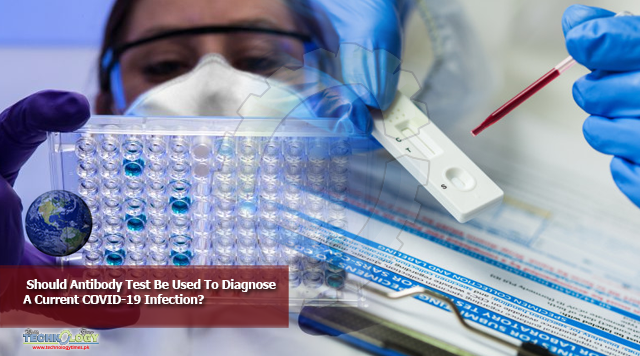These tests look for the presence of antibodies, which are proteins made in response to COVID-19 infection. Antibodies are detected in the blood of people who are tested after infection; they show the body’s efforts to fight off a specific infection.

CDC has developed interim guidance for how healthcare providers, laboratories, and public health staff should use antibody tests.
The virus that causes COVID-19 is new, and what we know about it changes rapidly. This guidance will be updated as more information becomes available.
Key points:
- In general, a positive antibody test is presumed to mean a person has been infected with SARS-CoV-2, the virus that causes COVID-19, at some point in the past. It does not mean they are currently infected.
- Antibodies start developing within 1 to 3 weeks after infection.
- We currently don’t have enough information yet to say whether someone will definitely be immune and protected from reinfection if they have antibodies to the virus.
- Healthcare providers who use antibody tests must know how the different tests work and use caution when interpreting test results:
- If someone tests positive for SARS-CoV-2 antibodies but does not really have those specific antibodies, the result is a false positive. Similarly, if someone tests negative for SARS-CoV-2 antibodies but does really have those specific antibodies, the result is a false negative.
- FDA has authorized antibody tests for this virus that have been submitted for their review. But these tests are not 100% accurate and some false positive results or false negative results may occur.
- A higher percentage of positive results may be false positives when these tests are used in people who live or work in an area where very few people have had COVID-19.
- People who receive positive results on an antibody test but don’t have symptoms of COVID-19 or have not been around someone who may have COVID-19 are not likely to have a current infection. They can continue with normal activities, including work, but still take steps to protect themselves and others.
- People who receive positive results on an antibody test and who are currently or recently sick or have been around someone with COVID-19 should follow CDC recommendations on caring for themselves and protecting others, and when they can be around other people again.
Originally published at Center of disease control and prevention